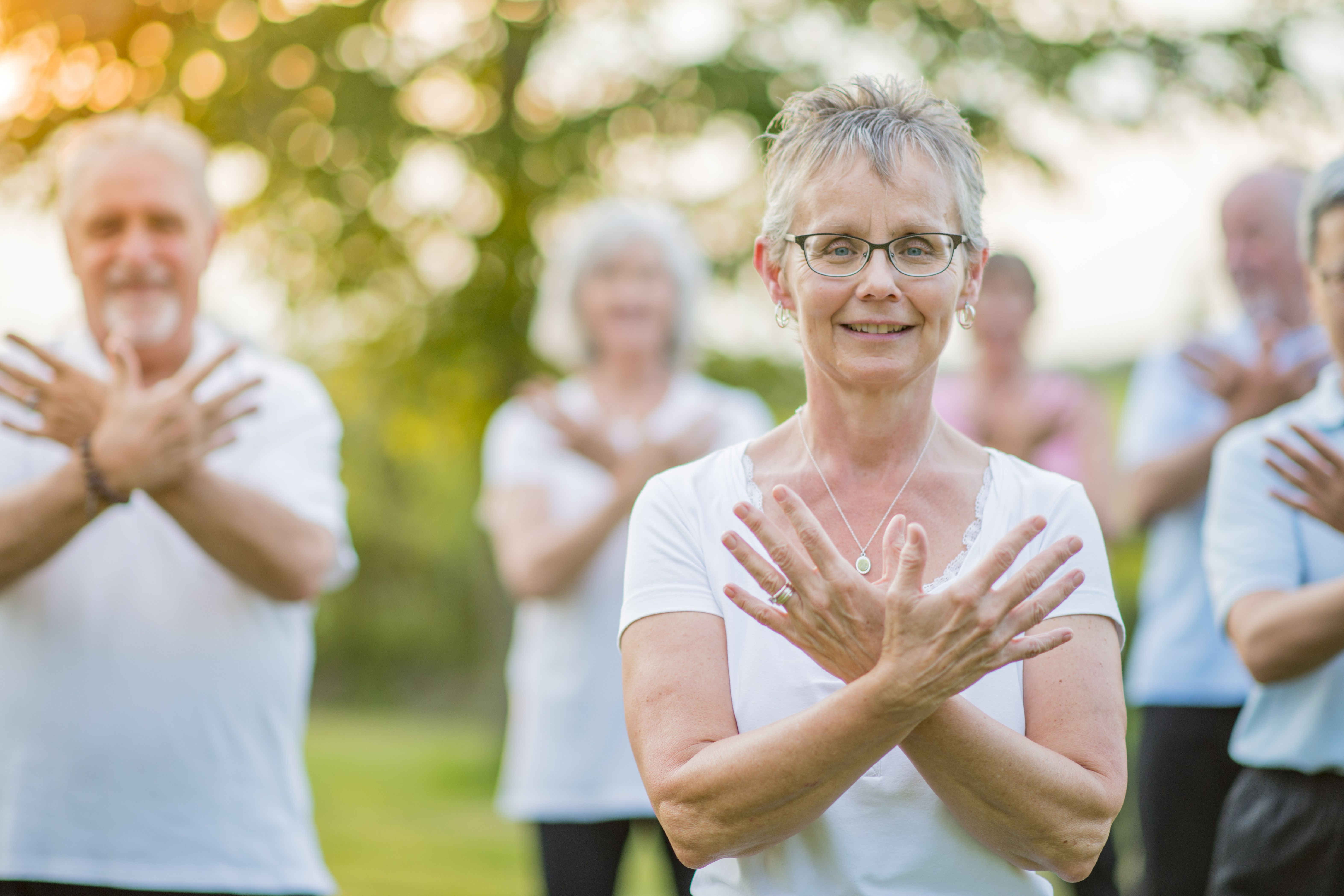AARP Hearing Center
“It’s funny where a little research can take you,” AARP volunteer Sara Knapp mused recently. “Like all volunteers, I wanted to make a difference and have an impact in my community. In my case, I began by searching through Transylvania County health data and ended up becoming a Tai Chi instructor! Never in my wildest dreams,” she laughs.
How does an online search in local health data lead a volunteer to Tai Chi? Sara explains, “I discovered in my research that falling was a real threat to the health of aging adults, especially in mountainous areas like WNC. So I became interested in programs that the goals are teaching people how to avoid falling in the first place.”
Sara is now a volunteer who is trained to lead two kinds of classes supported by NC Center for Health and Wellness, part of UNC Asheville. The mission of the North Carolina Center for Health and Wellness (NCCHW) at UNC Asheville is to develop equitable opportunities that lead to healthy North Carolina communities.
NCCHW works to impact policy, build capacity and ignite community initiatives by working through a web of cross sector relationships organized around building healthier places throughout the state. Staff broker ideas, champions projects and collects results about how to produce health at the population level.

To improve your balance and help you avoid falls, UNCA supports these evidence-based health promotion programs:
- Walk with Ease
- Tai Chi for Arthritis and Fall Prevention
- A Matter of Balance
- Living Healthy with Chronic Pain, Chronic Disease, and/or Diabetes.
Sara explains, “Most of the participants in these programs have experienced a bad fall or find moving somewhat painful. Many are now scared to move. The problem is that without moving, they are at even greater risk for falling.
The purpose of these programs is to gradually build strength and confidence in movement. As a volunteer leader, you not only benefit in learning these lessons for yourself, you gain so much more by listening to and sharing with others.”
Sara smiles and talks about her newfound love of colorful socks. “The socks are fun, but there’s a serious story behind them, one that helped all of us become better teachers. As we were developing the idea of teaching Tai Chi online, a longtime Tai Chi instructor, Nicole Hiegl, cautioned us to be sure that the camera always shows the instructor’s feet, so that students at home are standing (or sitting) properly while completing a movement.
Ellen Bailey, one of my new friends from this whole experience, came up with the idea of wearing brightly colored socks to help people at home see more clearly where her feet were on the floor and in relation to the rest of her body. Now she gets rave reviews from students on her socks!”
“The whole process has been a wonderful experience for me,” Sara says. “I’ve learned so much along the way, not just from instructors like Nicole and Ellen but from the other participants as well. It’s also been gratifying to know that I’ve contributed to the process, by helping everyone get more comfortable with the online technology we’re now using.”
"Evidence-based classes have been researched and tested, some over several years with many instructors. “You really don’t have to be an expert to teach these classes,” says Morgan Wilson, project specialist at NCCHW, Healthy Aging Initiative.
"We can connect you with the right resources, including trainings, tools and supports you may need," Wilson adds.
For more information, contact Morgan at mklinkow@unca.edu. You can also watch this online event hosted by AARP about NCCHW’s fall prevention programs: https://youtu.be/Z3XH3v5HPJg































































